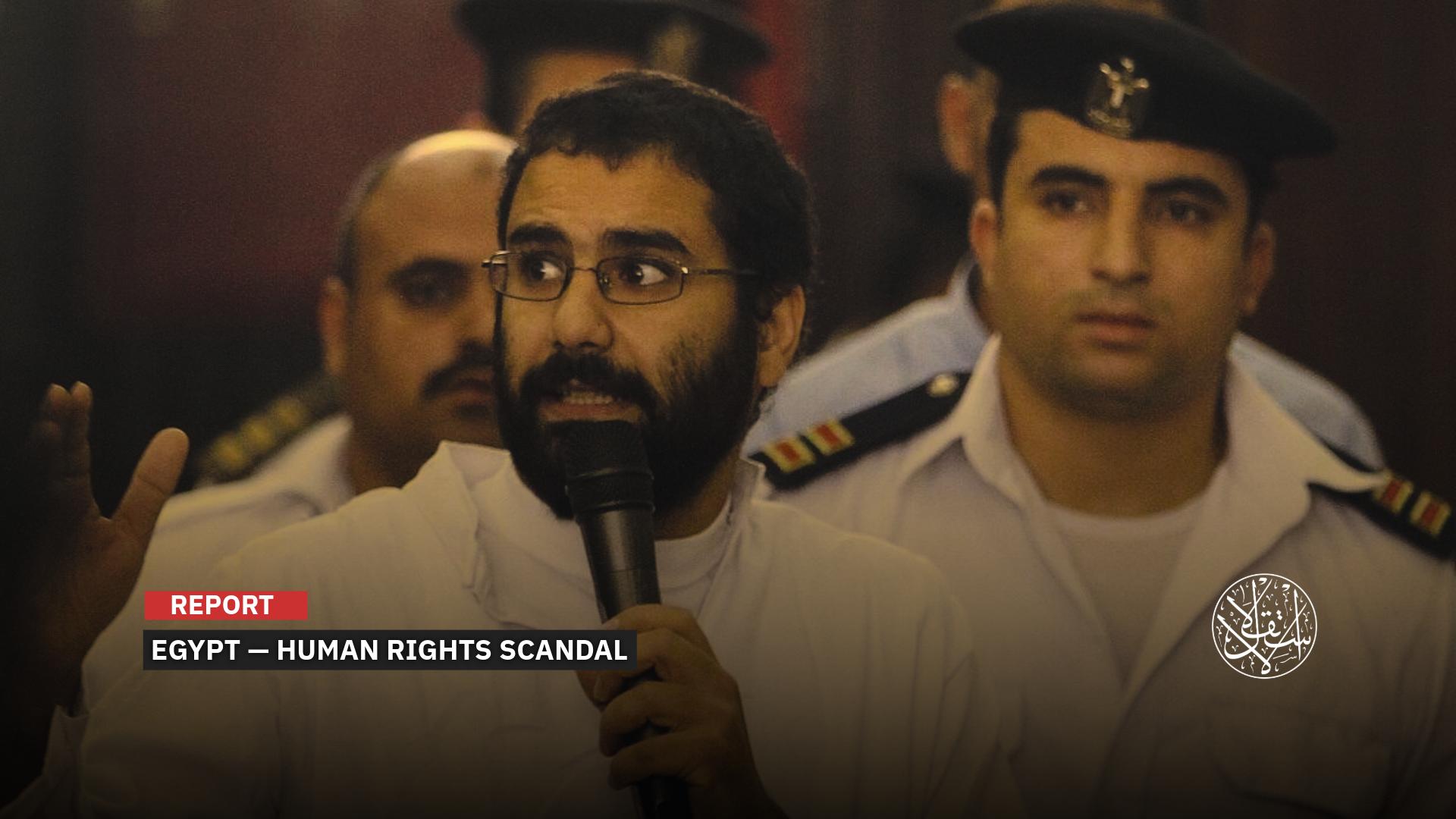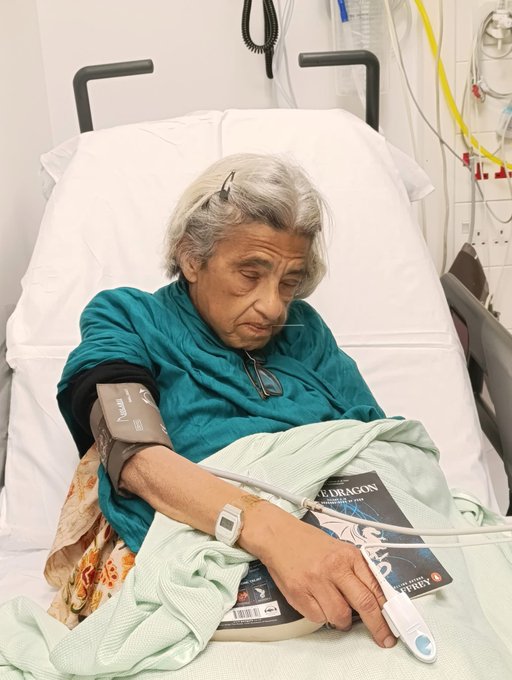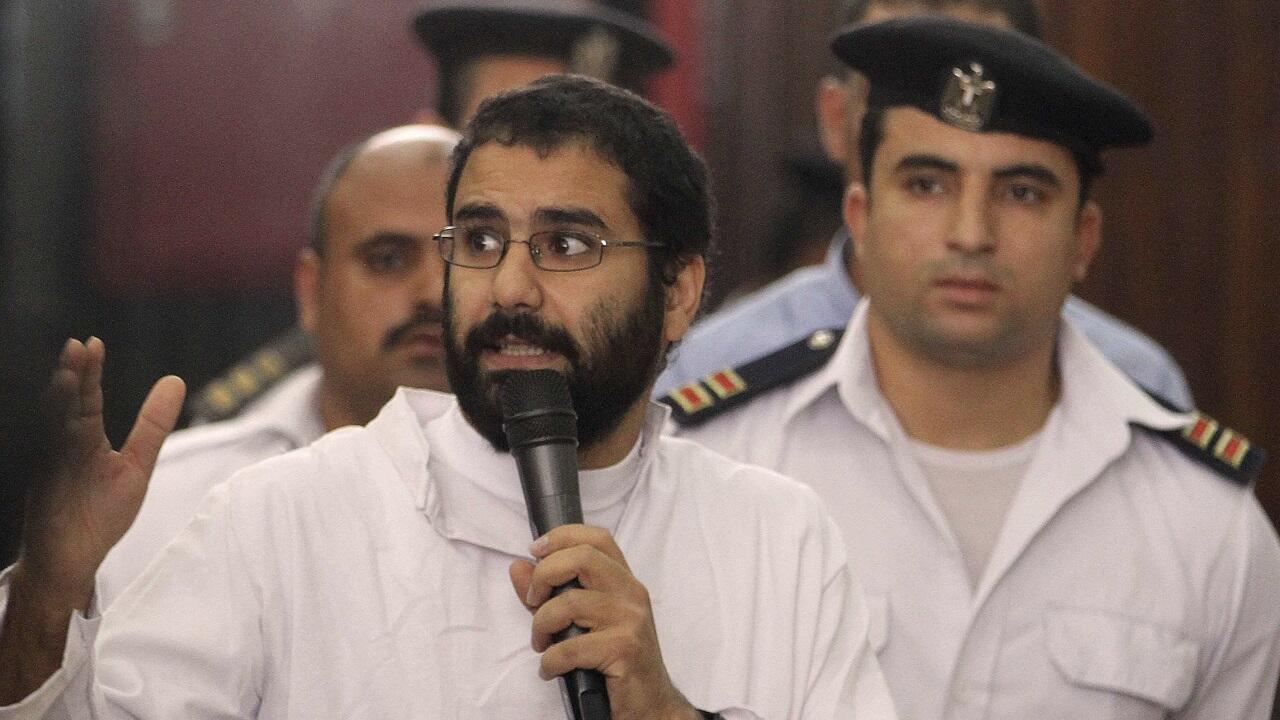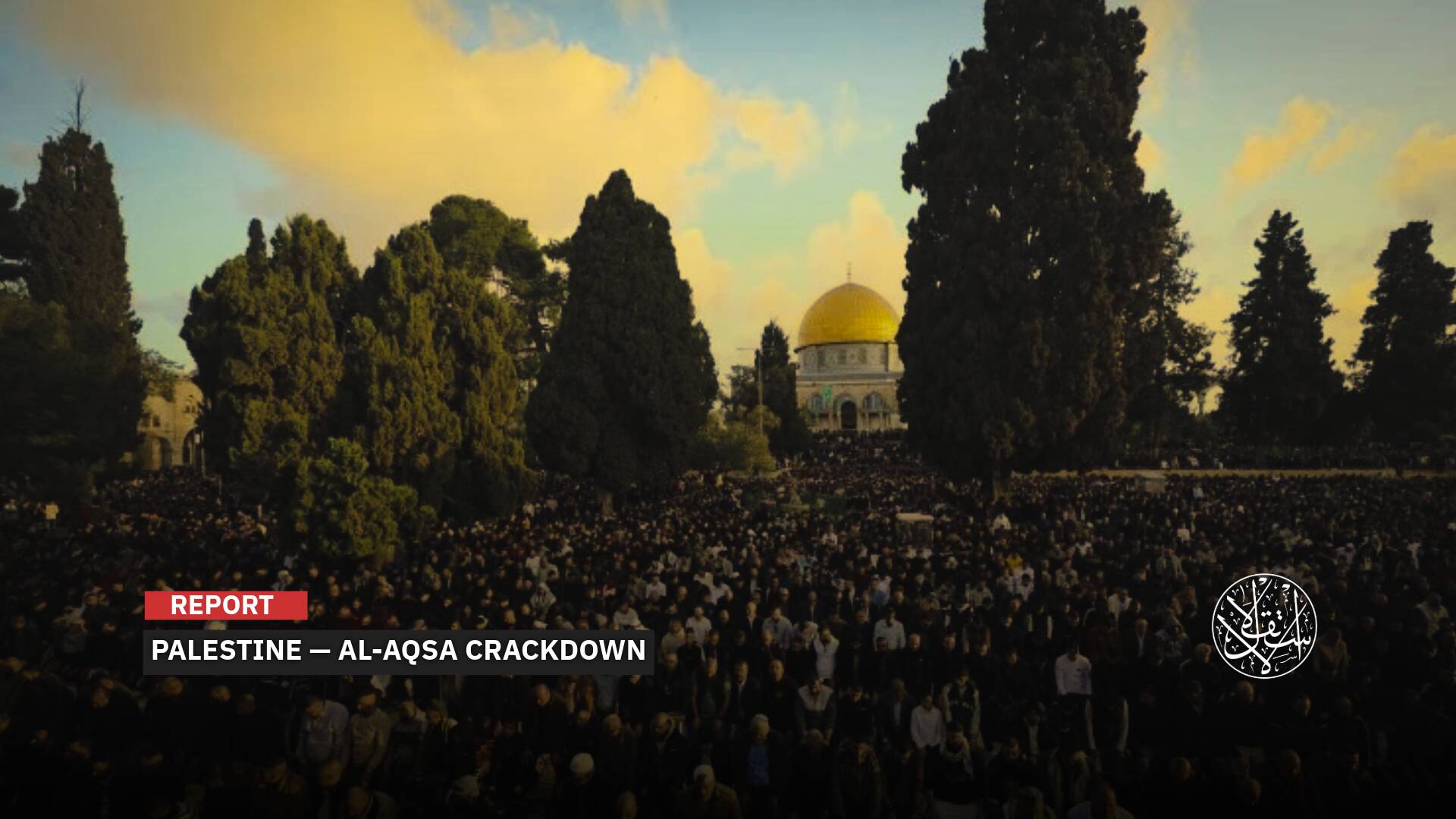Sisi Orders Alaa Abdel Fattah’s Release: British Pressure or a Move to Ease the Embassy Crisis?

The Human Rights Council pushed for Alaa’s release after Britain arrested Egyptian youths tied to regime security in the London embassy clashes.
All signs indicated that Egypt’s regime head, Abdel Fattah el-Sisi, was deliberately targeting political activist Alaa Abdel Fattah, a prominent figure of the January 25, 2011, revolution, by imprisoning him, reopening cases against him, or extending his sentence, all because he had personally criticized el-Sisi and attacked his policies.
Not even the slow death of his mother, Dr. Laila Soueif, who staged a long hunger strike, won him mercy. Instead, el-Sisi’s regime intensified its crackdown against him, ignoring repeated requests by successive British prime ministers for his release after he obtained British citizenship.
The situation shifted after the embassy crisis, when Britain arrested pro-regime loyalists who had assaulted dissidents in London and when supporters of el-Sisi demonstrated outside the British embassy in Cairo. At that point, discussions began over releasing Abdel Fattah, with some rights groups speculating about the possibility of an undisclosed swap deal.
The decision was framed indirectly, as if Egypt’s regime-affiliated National Council for Human Rights had formally requested a presidential pardon for a group of detainees. Abdel Fattah was included among them, while the others served largely as cover for the real decision.
At 43, Abdel Fattah remains one of the most prominent faces of Egypt’s 2011 uprising. The activist, who holds British citizenship, has spent most of the past decade behind bars. He served his unjust prison sentence in September 2024, yet remained in detention until now.

A Delayed Decision
On September 8, 2025, Egypt’s National Council for Human Rights issued a statement urging the head of the Egyptian regime, Abdel Fattah el-Sisi, to consider granting a presidential pardon to a number of detainees, including Alaa Abdel Fattah.
The council said its appeal was based on petitions from families of detainees and on its own review of the humanitarian and health conditions they face. It emphasized the suffering of those families and the urgent need for relief.
What stood out, however, was the deferential tone of the appeal. The National Council for Human Rights described the release of Abdel Fattah as stemming from el-Sisi’s “purely paternal motive,” adding that the “right of presidential pardon falls within the constitutional powers granted to Your Excellency.”

Although journalist Mohamed Oxygen was tried in the same case as Alaa Abdel Fattah and sentenced to four years, not five, meaning his sentence has already expired, he was not included in el-Sisi’s pardon, which instead listed several little-known names. Alaa’s sister has since demanded his release as well.
Alaa’s family, along with political figures, had previously submitted multiple petitions to the Egyptian regime and to judicial bodies requesting his release, noting that he had already served his prison term in 2024. Regime authorities, however, insisted that he would not be freed until January 2027.
On September 9, 2025, el-Sisi responded to the request from the National Council for Human Rights by instructing “the relevant authorities” to review its petition. The move appeared designed to frame Abdel Fattah’s release not as the result of his hunger strike, his mother’s suffering, or Britain’s pressure, but rather as a response to a regime-affiliated council’s appeal and el-Sisi’s so-called “paternal authority.” The council’s statement left the timing of his release unclear.

Alaa Abdel Fattah, 43, has been imprisoned since September 2019, serving a five-year, non-appealable sentence handed down by Egypt’s exceptional State Security Court on charges of spreading false news.
He was jailed again after reposting a tweet about the death of a detainee under torture. The case was fabricated in September 2019, less than six months after his release from a previous five-year term for protesting without a permit.
The British-Egyptian activist and writer was due for release in September 2024 after completing an unjust five-year prison term handed down by an emergency court. Instead, Egyptian authorities refused to credit the more than two years he spent in pretrial detention, resetting the clock to January 2022 when the verdict was ratified. The decision means that, after already losing most of the past decade to prison, he is not expected to walk free until 2027, according to his lawyer Khaled Ali.
In April 2022, London granted Abdel Fattah British citizenship while he was still in prison in hopes of securing his release after he began a hunger strike. Cairo, however, defied mounting pressure and refused to free him, insisting he would remain jailed until 2027.
His activism, combined with the legacy of his parents—both well-known for challenging torture and pushing for justice—made him, in the eyes of el-Sisi’s authorities, a symbol of defiance. Alpheratz Magazine reported on March 21, 2025, that notoriety ensured he remained a constant target, cycling in and out of prison since 2011, with only brief periods of freedom before new charges put him back behind bars.
Behind the Decision
Signs of a potential release emerged in July 2025, when Abdel Fattah’s family ended their hunger strike and a Cairo criminal court removed his name from the “terrorist entities list,” ruling that he no longer engaged in activity linked to the Muslim Brotherhood. The decision lifted several restrictions, including a travel ban and the freezing of assets, though it stopped short of freeing him. Lawyers at the time predicted his release was imminent, prompting Abdel Fattah to suspend his hunger strike in anticipation.
But the delay in freeing him led Alaa Abdel Fattah to resume his hunger strike in early September 2025. According to his mother, Laila Soueif, Abdel Fattah told her he restarted the strike after receiving unfulfilled promises from state security officials more than a month earlier that he would be released within days following the removal of his name from the terrorism lists. The decision had been officially published in al-Waqa’i‘ al-Misriyya (the Egyptian Gazette) on July 30, 2025. Despite that, he remained in prison.
A lawyer familiar with Alaa Abdel Fattah’s case told Al-Estiklal that the delay in his release after being removed from Egypt’s terrorism list came down to two factors: the diplomatic fallout with Britain over the embassy clashes and the need for a “legal cover” to justify setting him free.
Preferring not to be named, the lawyer said the appeal from the National Council for Human Rights to the head of the regime, Abdel Fattah el-Sisi, provided that legal pretext. He added that defusing the embassy crisis, or even an unannounced prisoner swap, may have also played a role. Under such a deal, Egypt could free Abdel Fattah as a British citizen in exchange for Britain releasing another Egyptian, Ahmed Abdel Qader, who was accused of carrying a knife and attacking dissidents outside the London embassy.
Tarek al-Awady, a member of Egypt’s presidential pardon committee, told Reuters on September 9, 2025, that Abdel Fattah’s release could come within “a few days.”
Despite these positive signs, pro-regime online groups attacked the idea of releasing “the traitorous agent Alaa Abdel Fattah,” as they called him, highlighting his past tweets that harshly criticized el-Sisi.
Why His Release Was Stalled
Former National Council for Human Rights head Moushira Khattab, who resigned in June, said Abdel Fattah’s case was further complicated by accusations that he contributed to the council’s downgrade in global rankings. She explained that while the council had previously petitioned for his pardon, his grandfather, rights advocate Bahey Eldin Hassan, filed a complaint questioning the council’s independence, which deepened the standoff.
On November 21, 2024, the accreditation subcommittee of the Global Alliance of National Human Rights Institutions (GANHRI) recommended downgrading Egypt’s council from “A” to “B” status. The body had previously held the top rating in 2006 and 2018, but the demotion underscored growing international concerns about its compliance with the Paris Principles on independence and effectiveness. Rights groups inside Egypt welcomed the move as an opportunity for an overhaul.
The Egyptian Front for Human Rights and other organizations said in a joint statement that the downgrade “represents a rare chance to restructure the National Council for Human Rights” and called for reforms to ensure its independence and prioritize the rights of the people.
In response, the council scrambled to mitigate the fallout, convening local and international rights advocates in a roundtable on “challenges facing civil society organizations and human rights defenders.” Human rights lawyer Mohamed Zaree said the effort was aimed at improving the council’s global standing, calling for reforms to strengthen its role, according to Fakar Tany on March 12, 2025.

What His Release Means
Rights advocates and journalists say el-Sisi’s decision to review the National Council for Human Rights’ recommendation is a prelude to freeing Alaa Abdel Fattah, following British pressure and the diplomatic crisis that erupted after Britain arrested pro-regime Egyptians involved in clashes outside the London embassy.
They argue that the acceptance of a petition to pardon seven detainees was essentially aimed at Abdel Fattah, with six lesser-known names included only to avoid making the pardon appear tailored to him alone.
The council’s recommendation to pardon seven political detainees—an almost symbolic figure compared to the tens of thousands still imprisoned—sparked criticism from journalists and activists.
Journalist Gamal Sultan said the council’s push to free Abdel Fattah came only after Britain detained Egyptian youths working with the regime’s security services and put them before a court in the aftermath of the embassy clashes.
After the January 2011 revolution, journalists, including Abdel Nasser Salama, former Editor-in-Chief of al-Ahram newspaper, mocked the decision to free only seven political detainees—six of whom were unknown—leaving thousands of elderly and sick detainees behind bars. They described it as mere “instructions” to the regime-affiliated Human Rights Council.
At the end of August 2025, United Nations High Commissioner for Human Rights Volker Turk called on Egypt to end arbitrary detention of regime critics, highlighting authorities’ use of extended pretrial detention beyond legal limits, according to Deutsche Welle (DW) on September 9, 2025.
“The Egyptian [regime] must immediately stop this practice of ‘rotation’ and release all those who have been subjected to it,” Turk said. “It appears to be used to circumvent the rights of individuals to liberty, due process and equality before the law.”
“Most of those targeted by ‘rotation’ should not have been detained or jailed in the first place–the charges brought against them are often related to the exercise of their legitimate rights to freedom of expression and peaceful assembly,” the High Commissioner added.
“This practice has become a tool by which the Egyptian [regime] represses those perceived to be critical of, or in opposition to, its policies.”
Egyptian regime authorities have repeatedly filed new cases against individuals whose sentences have ended, often with charges identical to the original ones, allowing authorities to begin new pretrial detention periods. Critics have dubbed this practice “rotation.”
Sources
- Who is Abd el-Fattah, the jailed Egyptian-British dissident who may soon be pardoned?
- Sisi’s Decision Renews Hope for the Release of Activist Alaa Abdel Fattah [Arabic]
- Rights Groups Welcome Downgrade of Egypt’s National Council for Human Rights to Category B [Arabic]
- After Downgrade, Egypt’s National Council 'Summons' Rights Defenders at Home and Abroad [Arabic]
- From Student Protests to London Hospitals: Laila Soueif’s Journey in Search of Justice [Arabic]
- Türk calls on Egypt to end “rotation” practice that facilitates prolonged arbitrary detentions
- Egypt Should Release Prominent Activist Alaa Abdel Fattah










